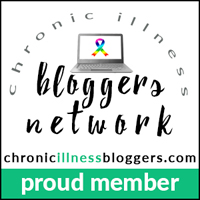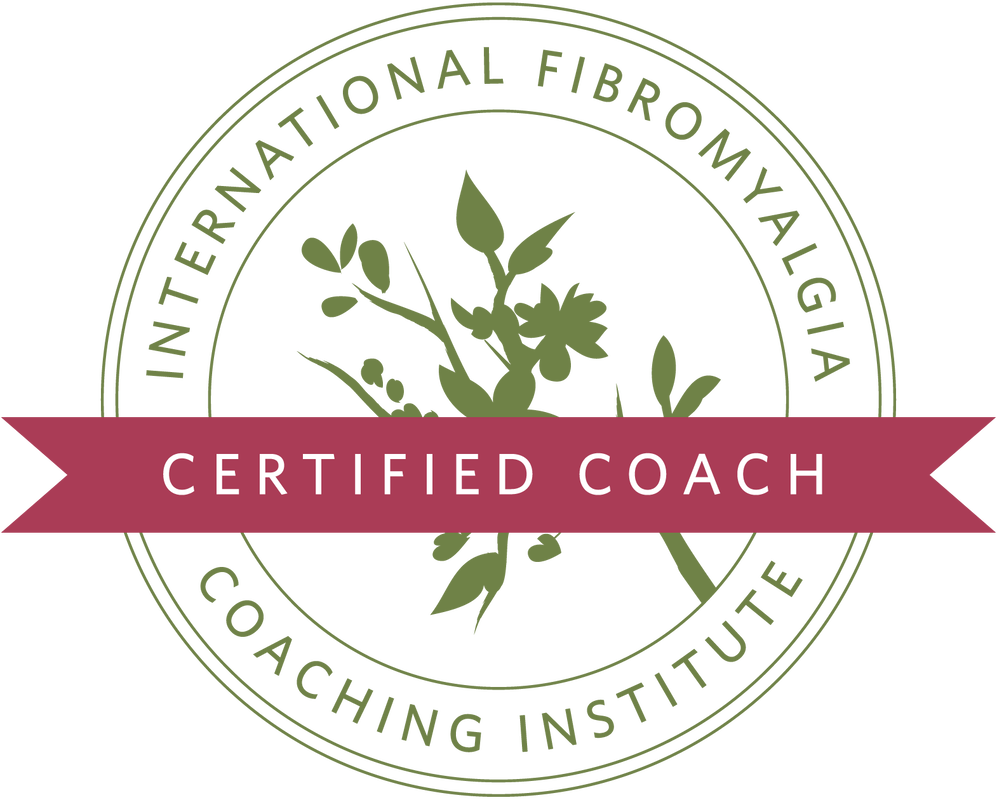|
This post was originally written in April 2015. However, a reminder came up on Facebook where I shared this post from my personal blog site and I felt that it might help others living with fibromyalgia to express what they struggle with on a daily basis. Please feel free to share AS LONG AS you give me CREDIT.
Dear mother, father, sister, brother, cousin, aunt, uncle, grandmother, grandfather, son, daughter, friend, co-worker, In speaking to a close friend recently, I realize that this letter isn’t just important, but crucial. Fibromyalgia awareness day is May 12th, so this letter cannot come sooner. I need to share some important information: Chronic pain is not a choice, it’s not enjoyable, and it’s not faked. Whether it’s LYME, Rheumatoid Arthritis, Multiple Sclerosis, Fibromyalgia, Myofascial Pain Syndrome, Lupus or any of the other disorders and diseases that cause chronic pain. According to the Mayo Clinic: “Fibromyalgia is a disorder characterized by widespread musculoskeletal pain accompanied by fatigue, sleep, memory and mood issues. Researchers believe that fibromyalgia amplifies painful sensations by affecting the way your brain processes pain signals”. We are not looking for pity, and for those that are lucky enough not to deal with chronic pain, we don’t even require understanding. What we do ask for is respect. Respect that our pain is real, that the side effects of our pain and the medications we take for our pain are real. “How are you?” is a loaded question. Do you want the answer that is given so that you don’t have to hear the whole *sordid* story; or, do you really want to know how we are doing? Because, we, as chronic pain sufferers, are phenomenal actors and actresses. I believe we should win awards for our “I am fine” answer. When we talk to others who suffer from chronic pain, we ask about each other and give a number from 1-10, in terms of level of pain, with 1 being low and 10 being out of control. I’ve been lucky to have some friends catch onto that and ask me with the rating. I guess what we want you to know is that our fine is usually different from your fine. Chronic pain means just that. Hardly a day goes by without some level of pain; however, we do have some days that are better than others. But, just because we “look good”, doesn’t mean we are ready to tackle a marathon or swim from Cuba to Florida (as one fellow fibromite made news – a clear exception to the rule – my mother is waiting for my turn to do the swim – just for clarification, I’ve NEVER been a good swimmer). Some of us are lucky enough to deal with low pain, and some of us are in so much pain, we require aids to help us walk (i.e. canes, walkers, wheelchairs). Pain affects every functioning part of your body: physical, emotional, psychological, and sensorial. It affects your sleep, often causing disordered sleep. Some can’t seem to get enough sleep and some actually aren’t getting enough sleep. It causes depression and anxiety. It affects all five senses. Because you are in persistent pain, it’s difficult to exercise, whether it be gentle movement or anything at all, on some days. It affects your ability to focus. For me, to be able to sit still is nearly impossible. If I’m watching TV, I’m also playing a game on my computer and texting with a friend. If I am reading, sometimes I need to re-read a paragraph over and over again. Some of us lose time. I am not referring to blackouts, per se; however, for me, I will stare off for what seems like moments and its 20-30 minutes later. We can be forgetful and have what’s called “brain fog”. It literally feels like there is haze around your thoughts. It’s as if you have to wade through pea soup to be able to complete simple tasks. Honestly, sometimes I would prefer the pain to the fog. Up until a few years ago, people were fascinated by my ability to remember things. My long term memory still stands strong; however, my short term memory has become quite weak. I try to play puzzle and quiz games to strengthen this present weakness. My chronic pain diagnoses are fibromyalgia and chronic fatigue syndrome. Interestingly enough, these are two disorders that my father researched over 30 years ago. There are many overlapping characteristics that fall within these two disorders. I am lucky and grateful that I have had a friend introduce me to support groups (all online) which in turn have brought me more friends that *get* me. It’s nice to be understood in that respect. So, I am open, as are most of my friends, in talking about our chronic pain disorders. Please feel free to ask me any question you’d like about either of these two disorders. I can tell you how I feel, and if I don’t have answers for other questions you might have, I have places to direct you, including (but not a comprehensive list): Mayo Clinic, National Institutes of Health, and National Fibromyalgia and Chronic Pain Association. Just please understand that chronic pain illnesses are often thought of as “invisible illnesses” because you can’t see visible reason for the pain. This doesn’t mean we aren’t hurting. So, the next time you see someone that you know has a chronic pain disorder, or you see someone walking out of a car in a disabled parking spot with seemingly no difficulty, please don’t judge. Don’t assume. And for goodness sakes, please don’t ever say, “But, you don’t look sick.” Sincerely yours, Kate
0 Comments
 Y’all know what I’m referring to when I talk about using my spoons, right? This is an important concept for anyone living with a chronic illness to know about. It’s especially important to use to explain to someone who does not live with chronic illness. In the case that you didn’t know about it, Christine Miserandino developed The Spoon Theory. So, on Sunday, I had a lot planned. That was my first mistake. I knew I had to leave the house at quarter to four to pick someone up to go to a late afternoon concert. Before that, I wanted to fold my clean laundry that hadn’t been folded yet, do the laundry that had piled up from last week, clean the kitchen and living room, shower, and get ready for the concert. That’s a lot of spoons, people! Yet somehow my fibro addled brain thought I could get it all done. HA! That morning, I woke up with my alarm. And, while I got a decent night’s sleep, my only focus was to figure out when I could get back into bed. I try not to make a habit of napping daily but there are just some days where whether or not you do nap, you aren’t going to get as much done because you’ll be thinking about how sleepy you are, how much you need that nap, and your productivity level will drop. So, I decided to not do the laundry. I still had clothes I could wear - plus, it was SO cold outside, I couldn’t imagine getting out of my snuggie unless it was into a warm bed. Change of plans - no laundry but nap was needed. So, I ate a hearty and healthy breakfast (I think, as I don’t really remember) and crawled back under the warm covers. I napped for an hour and a half (or so), and got up. I chose to start with the least difficult of the tasks and tackled my living room. It took a short time, just picking some things up to throw away and do a quick vacuum and swiffer. Easy enough, right? NOPE. I think I woke up with some of my daily allotted spoons already missing and after this “simple” task? Boom - spoons gone! I still had to shower and get ready for the concert. All other plans were pushed to the curb. I don’t know about you, but for me, sometimes showers invigorate me and sometimes they exhausted me. On Sunday, it was the latter. After showering, getting dressed, doing my hair and makeup, I was done for the day. But, the day wasn’t done. I had been counting down the days for this concert and despite my exhaustion and pain creeping up, I was NOT going to miss it. So, I went to pick up my friend, waited in line to get our seats and sat down. As soon as I sat down, I felt my body just go slack. I had pushed it too far. Thankfully, this wasn’t a concert where there is a lot of standing up, sitting down and dancing, so I could sit quietly and enjoy the show. I was just worried that not only had I used up my spoons for Sunday, but for Monday as well. And, while most hate ending their weekend, Monday is one of my favorite days as I get to spend a couple of hours with some super cute babies. By the time the concert was over (which was amazing by the way - I sang every song along with them), all I wanted to do was to go home and crawl into my pajamas and get ready for bed. But, I had to drop my friend off, come home and make some semblance of dinner, and then get ready for bed at my regularly scheduled time. As the night wore on, I started to notice even more so that my body and mind were deteriorating with all I expected myself to do - and I hadn’t even done half of it. I’m not berating myself at all, but I knew my list of things to do was too much for this fibro body to handle. My coach, and friend, once said to me, “somethings are flare worthy,” meaning that sometimes you have to be prepared for whatever may come to you fibro wise in order to do something you really want to do. She’s right. The concert was flare worthy. But, I am blessed to have a flexible schedule so that if I am in a flare, I always have the option to move things around. My time with the babies is voluntary so I canceled that, and took the time on Monday to be kind to my body. My fibro diagnosis is about five years old now, although my symptoms have been present for much longer. That may not seem a lot to many, but I’ve learned more about what my body can and cannot handle in these five years than all of the rest of the years put together. I’m not perfect, as sometimes I forget and push myself to that flare point (worthy or not). But, with my training as a coach, coaching others, and just learning about myself, I think I have become pretty good at keeping many of the more common fibro symptoms at bay. Is this something you are struggling with? Would you like some guidance in how to plan for busy days, how to use your spoons effectively, and how to treat your fibro body kindly? Drop me a line and let’s set up a time to chat. You can do that here. I’m looking forward to hearing from you! =) I recently read an article entitled How A Traumatic Brain Injury Can Lead To Fibromyalgia which I found fascinating considering many people believe that fibromyalgia can be caused by trauma. According to the author, “Any brain injury can result in garbled or mixed signals to the various centers in the body and thus result in a misdiagnosed case of fibromyalgia. The real question is, “Is fibromyalgia a result of a brain injury or another condition?” Doctors are divided on their beliefs as to the possibility of fibromyalgia being related to a brain injury.” So, as I stated before, just as doctors are divided about the possibility of fibromyalgia being related to a brain injury, they are just as divided as to whether fibromyalgia can be caused by any traumatic injury or event. For anyone who has had a “bump on the head,” the article strongly recommends that no matter how “minor” the bump was to get evaluated and possibly monitored by a doctor to make sure that no trauma has been caused to the head. “Many patients complain of what is called ‘fibro fog’. [This is a common symptom of fibromyalgia.] This is the state in which the patient feels as if they are walking around in a fog and unable to fully wake up. While it could be the result of a dysfunction in the brain and the neurochemicals it may also be the result of some form of brain damage which has gone undetected. It can also happen from long term chronic pain or inflammation. Occasionally, it is also a side effect of medication that brings on the fog feeling. Fibromyalgia and traumatic brain injury can happen so always check with your doctor if you’ve had a bump on the head.” I am in no way posting this to scare you but to share one possible reason you can be diagnosed with fibromyalgia. Also, I wanted to share a bit of my personal story so that many of you can relate. I was born nearly two weeks late. My mother went through a difficult labor (she often reminds me that the pain was so bad she felt her eyeballs hit the ceiling), and I ended up getting stuck in the birth canal. I’m not quite sure how long I was in there but it was certainly enough to be worrisome. Because I was stuck, my mother’s OB decided to use forceps to help with the delivery. I came out okay, with a slightly misshapen head (which is often normal) and appropriate apgar scores. However, I was a “different” type of baby. I slept A LOT. More than the average baby of my age. My mother used to tell me that she couldn’t “get things done” because I was always sleeping (I know many parents would LOVE this option). My motor skills were delayed (and some still are). I didn’t walk until I was 22 months old. I had trouble learning to ride a bike and I am clumsy. My ability to use my hands in a functional matter is still delayed. The example I often give is that I am unable to pick up a coin from a flat surface. My pincer grasp is immature, so the only way I can pick up that coin is if I slide it off that surface. At nine months old, I was taken to a neurologist because I had some developmental concerns. The doctor noted that I might have mild cerebral palsy but nothing was noted and nothing was done about it. That diagnosis was confirmed nearly 15 years ago as an adult. However, with my background as a special educator, it made sense. For those of you who don’t know what cerebral palsy is, as defined by dictionary.com: “a nonprogressive impairment of muscular function and weakness of the limbs, caused by lack of oxygen to the brain immediately after birth, brain injury during birth, or viral infection.” All of this is coming together isn’t it? Technically, I had a traumatic brain injury. Now, I was only diagnosed with fibromyalgia 5 years ago. However, reflecting back, some of the symptoms have been there since I was a young child. I believe that my fibromyalgia, in its fullest form, was triggered by another traumatic event that occurred over 10 years ago. I don’t need to go into anymore details aside from the fact that it was post-surgery trauma. So, this whole idea of traumatic brain injuries causing fibromyalgia is real to me. I don’t necessarily believe that it’s the only way that fibromyalgia can occur as I believe that fibromyalgia is still so much a mystery to the medical world. Do you feel like your fibromyalgia was caused by a traumatic brain injury or rather a different type of traumatic injury or event? Do you need some help to reconcile what happened to you? I’m here to help! By now, if you’ve been reading my blog posts regularly, you’d know how to contact me. If not, you can drop me a line here. I look forward to hearing from you soon! =)  For those of you who didn’t get to read the first two parts of the blog journey, here are the links: Let’s continue, shall we? Time for a new rheumatologist. I sought out recommendations from a community page on Facebook and received many recommendations for this one doctor. He was taking new patients, was a part of my Jewish community (I like to support fellow members if I can, but it’s certainly not a requirement.) and came with glowing recommendations. I made an appointment with a rather short turn around time and eagerly anticipated the date. The date came, I brought all the paperwork I was requested to fill out, and was excited to meet this highly recommended doctor. As most initial appointments go, I reviewed what I painstakingly wrote out, explained why I switched doctors and awaited what this new doctor’s plan of action was going to be. His response? “I think before we address any of your fibromyalgia needs, especially related to medication, we first need to address your sleep. Once you get your sleep under control, it’ll be easier to address your fibromyalgia symptoms.” *Sigh* I responded, patiently and kindly, that I had a psychiatrist who was doing just that and I was comfortable with his work. The doctor put his foot down and insisted that I return to a medication that was no longer working because it is a medication that works for most people living with fibromyalgia. I wasn’t going to get out of this, at least at the appointment, so I agreed to start. I allowed the doctor to give me a script for the meds. I walked out of his office knowing very well that I wouldn’t be seeing him again and wouldn’t be using that script. I had been out of work for months. I was denied unemployment benefits because I quit my job. And, for some reason unknown to me or any of my friends, I was denied food stamps. I was out of a job, in pain, and without a competent doctor (that’s my opinion of course). I started looking into applying for disability. I completed the documents online and sent requests from all the medical professional that I had seen in the couple of years I had lived in Pittsburgh to send their records. I waited months for a response and received and very thin letter in the mail (think college rejection letter) stating that my needs were not severe enough to qualify for disability. *Sigh (Again)* I had decided to apply on my own because I didn’t think I had the funds to pay for a lawyer. But, once someone alerted me that the lawyer only gets paid if I qualify for disability, I was in. I requested, again, a recommendation for a disability lawyer on that same group facebook page. I called his office, made an appointment, and prepared to meet with him. I will stop there. I know how hard it is for many of us to focus so this will be continue as a multi-part series of my journey. If you identify with some of this, or are considering application to disability, please feel free to reach out and I can help you with the knowledge that I now have from the experience.  Wednesday passed by and no blog was written or posted. Life happens. I was thinking this morning, coming home from a doctor’s appointment, that I can go into all the negative reasons my blog didn’t happen yesterday and then I heard the internal “Screeeeeech” (picture a car braking, hard) and realized that there was no need for me to be Negative Nelly on my blog post. I thought about the appointment that I was coming home from and instead decided to post about that because there was so much positive that came out of it. Before I start on it, please read this post (hint, click on the word post ;-) ). SLEEP. Let me tell you about sleep. Two months ago, I had an appointment with a sleep specialist that my amazing doctor used her pull to get me an appointment for. He wasn’t taking new patients - but thank G-d for my PCP, I got in. I was excited to meet with him and find out what new MEDICINE he had to help me sleep. Because, while I was in bed for at least 10-11 hours a day, I was getting very broken, very poor sleep for about 7-7 ½ hours. Some people will say, wow, 7 ½ hours? That’s amazing, as I only get 5. Well, we all have our magic numbers for how many hours of sleep will allow us restorative sleep, and I believe mine is/was 8.5-9 hours. So, I met with the doctor’s resident and talked to him for a long time after waiting three months for an appointment, filling out a 20 page questionnaire, and doing a sleep study for two weeks. My verdict given to me by this specialist was exactly what I WASN’T looking for: a behavioral approach. I was to take two months and complete a sleep diary. Fine. That wasn’t the part I was, excused my language, pissed about. The part I was unhappy about was that this doctor’s approach was to only be allowed in bed for the amount of hours you sleep. So, I was only allowed to be in bed for 7.5 hours. WHAT???? I was given the opportunity to choose the hours that I wanted to spend in bed. Boy, was that hard! I could choose to stay up very late (for me) or wake up very early (for me). When you live a live with chronic illness, sleep, or lack thereof, is one of the top issues that we deal with. So, I was going to deal with it. I started the plan. I was not to get in bed before 1AM and I had to wake up at 8:30. Those were both painful hours to fall asleep and wake up to, but it was the best compromise I felt I could handle at that time. The first week, even less than a week, was brutal. BUT, then my brain started shifting. I was falling asleep quicker and waking up less and for shorter amounts of time. The big thing, for me, was that after about a month, I started dreaming! I couldn’t tell you the last time I dreamt because I so rarely reached stage four of sleep. And now, you look at my sleep charts and you see that I am sleeping for long periods of time - up to four to five hours. The amount of times I wake up has significantly diminished, and the quantity of time I remain awake has also decreased. Cue happy dance. This behavioral plan was presented after major research and has been successfully implemented with hundreds of clients. I gave you the short story with a happy ending. So many of us with fibromyalgia struggle with sleep for so many reasons. Are you struggling with your sleep? Would you like some significant help with scientific research behind it? Comment below, send me a message, or set up a complimentary consultation (all of these can be done on this webpage). I look forward to hearing from you! |
AuthorI’m Kate Straus and I’m a Certified Fibromyalgia Advisor. I help Jewish women feel confident in their ability to practice their faith while navigating the ups and downs of fibromyalgia. I’m using the disease that at one time knocked me down, to help support others live life to their fullest. Archives
January 2021
Categories |

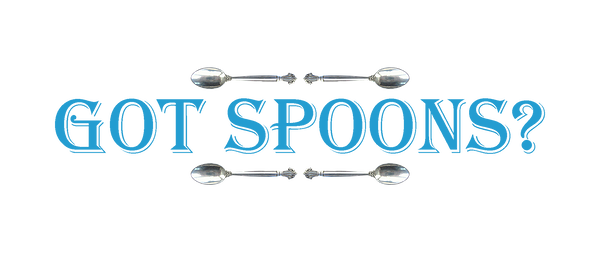
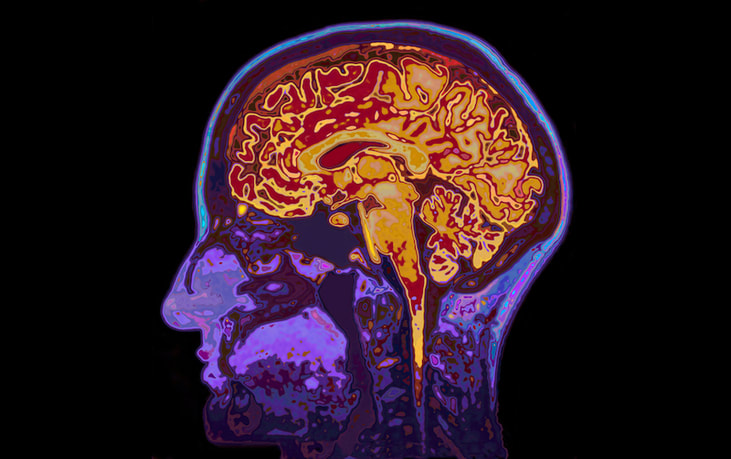
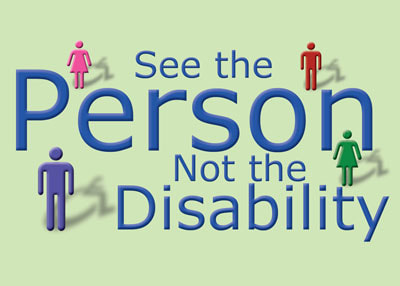

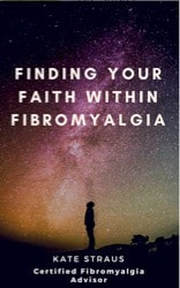
 RSS Feed
RSS Feed
